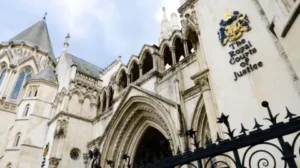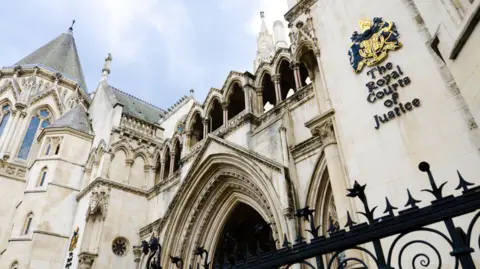In a significant legal decision announced recently, Palestine Action is set to be banned after a High Court judge denied the group’s request for a temporary injunction to block its proscription as a terror organization. This ruling marks a pivotal moment for the activist community, particularly for those who identify with Palestine Action’s direct action methods aimed at protesting actions related to Palestine. The court’s decision means that supporting Palestine Action could now be classified as a criminal offense, with potential penalties including imprisonment for up to 14 years for both membership and expressing support for the organization.
The group, co-founded by Huda Ammori, has vowed to challenge the High Court’s ruling, with Mrs. Ammori’s legal representatives announcing intentions to pursue an “urgent appeal.” She termed the court’s decision a “dystopian nightmare,” highlighting the stark implications it could have not just for the organization but for broader civil liberties surrounding protest rights and free speech in the United Kingdom. The ruling specifically stipulates that the formal ban on Palestine Action will take effect at midnight, marking a watershed moment in the clash between governmental authority and activist movements.
On the day of the ruling, Justice Chamberlain articulated that the potential harm arising from denying interim relief was insufficient to outweigh the compelling public interest in maintaining the order, essentially siding with the government’s stance on the issue. He noted that while many fears expressed by those in support of Palestine Action were significant, he deemed some of these reactions to be “overstated.” This statement underscores a growing tension around the interpretation of what constitutes acceptable forms of protest and civic action.
The backdrop to this legal battle stems from recent events, including an incident where Palestine Action claimed responsibility for causing approximately £7 million worth of damage to aircraft at RAF Brize Norton last month. This incident reportedly influenced the urgency with which the government sought to formally categorize Palestine Action as a terror group. The amendment to the Terrorism Act 2000 that facilitated this ban was swiftly approved by both the House of Commons and the House of Lords earlier in the same week, indicating a political consensus to take a hardline approach towards the organization.
During arguments presented in court, Raza Husain KC, representing Palestine Action, characterized the ban as “ill-considered,” denouncing it as an “authoritarian abuse” of governmental power. He pointed out that this is a historic precedent as it is the first time a civil disobedience group, which specifically does not advocate for violence, has faced such a classification. His remarks invoked deep concerns regarding the implications this ruling holds for other activist groups and their right to protest.
Following the ruling, Ammori reflected on the ramifications of the court’s decision, asserting that “thousands of people across Britain” would effectively find themselves criminalized for their support of a domestic protest group. By painting a picture of ordinary citizens suddenly deemed criminals for engaging in acts of protest—like applying red paint to warplanes or disrupting operations at companies associated with military manufacturing—she emphasized the chilling effect such legal interpretations could have on public dissent.
Morrison’s resolve continues as she stated defiantly, “We will not stop fighting to defend fundamental rights to free speech and protest in our country and to stand up for the rights of the Palestinian people.” Her statement encapsulates the ongoing struggle for activist groups against what they see as oppressive political measures, calling into question the very balance between national security and civil liberties in contemporary society. The effect of this ruling will undoubtedly resonate far beyond the immediate confines of Palestine Action, impacting a range of advocacy and protest movements both in the UK and potentially beyond.











